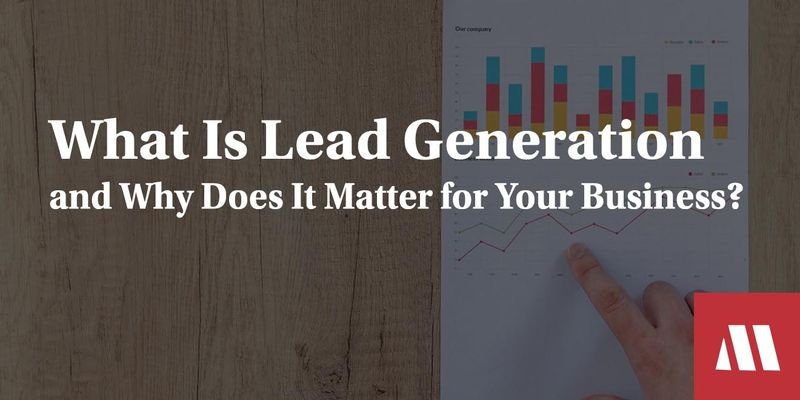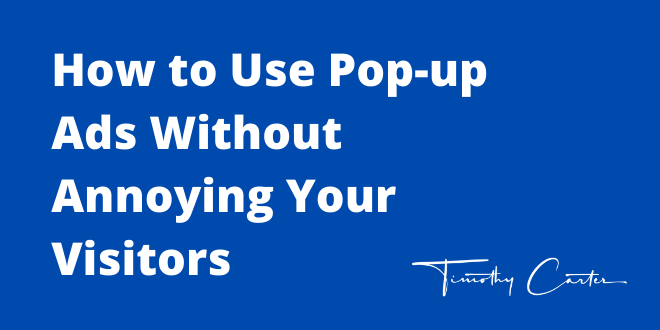
Overcoming Setbacks and Embracing Success
September 16, 2024
Lead Generation Strategies for Real Estate Agents: Attract More Clients
January 9, 2025Lead generation carries a different connotation with every business owner.
For some, it’s a crucial stream of new prospects that keeps the business alive.
For others, it’s a waste of money that shouldn’t be considered.
For still others, it’s a potentially massive benefit that they just can’t seem to crack.
So what does lead generation mean to us?
Well, on some days, it’s a headache, to be perfectly honest. But generally, we recognize lead generation as one of the most important elements of any sales and marketing strategy.
What exactly is lead generation and why is it so important for your business?
The Basics of Lead Generation

Lead generation is the process of generating leads.
Duh.
But really, lead generation services include a series of strategies and tactics designed to find, target, and connect with people who are likely to buy your products and services. In this way, it straddles the middle line between marketing and sales. Many lead generation strategies are also marketing strategies, but they differ in the sense that they’re specifically designed to produce quality leads.
A successful lead generation strategy will provide you with a steady stream of people who are primed and ready to buy your products. Depending on the nuances of your strategy, it might mean that they’re much more likely to buy products and services through your website, or it might mean that they’re ready to receive a call from your most talented sales team.
In any case, if you can master the art of lead generation, you’ll always have a steady stream of new and excited customers for your business.
Also, if you truly master the art of lead generation, let us know because you can probably teach us a thing or two…
Why Does Lead Generation Matter for Your Business?
There’s a reason why more than half of marketers consider lead generation to be a top priority in their marketing efforts.
And it’s not because more than half of marketers are stupid.
It’s because lead generation matters for your business in a multitude of ways.
· Sales and revenue. The first and most obvious benefit of better lead generation is a path to greater sales and revenue. If you have a good lead generation strategy in place and you use it well, you’ll naturally increase the number of leads generated. More people who are ostensibly interested in your products will have the immediate opportunity to buy them, and more people who have never heard of your products before will have an opportunity to hear about them. Assuming your targeting is on point and your messaging is persuasive, you should have no trouble multiplying your earnings with superior lead generation.
· Brand awareness. Marketers also appreciate the capacity for lead generation to increase brand awareness. Even if your marketing qualified leads or sales qualified leads don’t buy your products right away, they’ll become more aware of your brand and more likely to buy from you in the future. By taking steps to nurture leads, you can build stronger relationships with potential customers. They may also be likely to recommend your brand to other people. In any case, the greater brand awareness you develop through your lead generation can have a secondary impact on your business development.
· Customer relationships. Lead generation can also be an opportunity to build customer relationships early, even before your prospects become full-fledged customers. Often, you’ll engage with individual customers either directly, with calls and emails, or indirectly, with drip email campaigns, social media messages, and more. Either way, your new customers will have an opportunity to engage with your brand and its representatives repeatedly. This warms them up and helps them build a stronger relationship with your brand. Eventually, this can increase sales and customer retention.
· Growth. Lead generation is a growth strategy. If you want to grow your business, investing in lead generation is one of the best ways to do it. The more you spend, the more reach you can achieve, the more prospects you can persuade, and the more customers you can bring onboard. If you start feeling confident about the way your lead generation efforts work, you can greatly increase your investments in them, hopefully multiplying their impact many times over.
· Less wasted time. You probably passively generate high quality leads through your existing marketing and sales tactics already. However, a more thoroughly vetted, targeted approach will work in your interest. Once you improve your targeting and polish your lead generation approaches to perfection, you’ll waste less time, you’ll waste less money, and your lead generation strategy will become far more efficient.
Lead Generation Strategies
Lead generation takes many forms.
Essentially, there are two big categories: outbound and inbound lead generation. In outbound lead generation, you’ll be specifically reaching out to new prospects and targets, filtering out irrelevant parties and following up with and nurturing appropriate targets.
These are a handful of examples:
· Cold email. Cold email is one of the most popular forms of outbound lead generation, even today. Yes, we’ve all had bad experiences with spam in our inboxes, and it’s true that most cold emails don’t get a response. But with the right targeting, enough relevance, and a broad enough reach, you can generate a significant flow of qualified leads through email alone. You can also use cold emails in combination with other lead generation tactics, so those messages aren’t so cold. It’s also highly cost-effective and easy to automate, so it has a place in almost any lead generation strategy.
· Cold calling. It’s true that 87 percent of people routinely ignore calls from numbers they don’t know. It’s also true that people are spammed to the brink of madness with irrelevant, robotic phone calls. But that doesn’t mean that cold calling is dead. Again, with the right targeting, with relevant messaging, and with a prioritization of quality and human connection, cold calling can be a valuable addition to your outbound lead generation portfolio.
· Social selling. Businesses integrate social selling into their outbound lead generation strategy. Essentially, this means networking with relevant people, expanding your web of connections, and trying to find people who are a good fit for your business and its products. This tactic is very hard to scale, but it’s much warmer and more likely to produce results with each interaction.
· Pay per click (PPC) ads. Another highly accessible outbound lead generation strategy comes in the form of pay per click (PPC) ads. As the name suggests, these ads allow you to generate traffic for your website or a specific landing page as long as you’re willing to pay for each lead that you generate. You can place PPC ads on a variety of channels, including Google, Bing, and most social media platforms. You can also use strategic lead generation tools to reach only the customers who are most relevant to your brand. Accordingly, it can be highly cost-effective and customized to achieve nearly any conceivable lead generation goal your business has.
Inbound lead generation strategies are differentiated by the fact that they attempt to naturally capitalize on existing interest. Instead of going out and tracking down potential sales leads, you’ll create beacons that invite them in, like moths to a flame – but with a much less dangerous setup.
These are some of the best examples:
· Search engine optimization (SEO). By now, you’ve probably heard about search engine optimization (SEO). The basic idea is to modify your website and build links to increase its likelihood of ranking for strategically valuable keywords and phrases. When done properly, it’s much more likely for people to find your business in search results, which means you’ll generate more organic traffic to your website. It’s a way of naturally capitalizing on searches people are already doing, and it’s very cost-effective when done properly. The biggest drawback is that it takes time to build authority and gain rankings, so it’s best complemented with outbound lead generation tactics.
· Content marketing. It’s almost unfair to mention content marketing as a separate point from SEO because the two strategies are so tightly intertwined. It’s almost impossible to practice SEO without content marketing, and if you practice content marketing, you’ll probably experience some SEO benefits without even trying. In any case, you can also practice content marketing with a more specific focus on lead generation; for example, you can produce premium pieces of content known as lead magnets and distribute them for free in exchange for contact information from your most valuable prospects. It’s one of the most convenient ways to build an email list.
· Social media marketing. Social media is another popular channel for inbound lead generation, if you use it to make posts, distribute content, build an audience, and naturally attract people who would be interested in your brand. Note that it can also be used for outbound lead generation in the form of social selling, PPC ads, and more. With so many channels to choose from and so many potential audiences to harness, the lead generation possibilities with social media are practically unlimited.
· Retargeting ads. It’s also common for businesses to use retargeting ads as a form of inbound lead generation. Retargeting ads are ads that appear to people after they’ve already visited your website or engaged with your brand in some meaningful way. It’s a passive and inexpensive way to capitalize on people who have already expressed genuine interest in your products or services.
· Webinars. Do you have knowledge or wisdom to impart to your target audience? If so, consider presenting it in the form of a free webinar. People will likely sign up in droves, providing their contact information in the process, giving you an opportunity to demonstrate your expertise and follow up in the future.
Because outbound and inbound lead generation strategies have different strengths and weaknesses, it’s a good idea to include both in your lead generation approach.
Quick Tips for More Effective Lead Generation
At this point, we’ve answered the central questions.
You came to this article because you wanted to know what lead generation is and why it matters your business, and if your reading comprehension skills are on point, you now know it.
But we didn’t want to leave you hanging.
So we’re going to leave you with some quick tips for more effective sales lead generation in your business.
· Work with experts. Lead generation can be overwhelming. It’s hard to know who to target, how to target them, and how to get the most value from your money. That’s why it’s a good idea to work with experts, especially at the beginning. Consider reaching out to a lead generation firm (like ours!) for more guidance.
· Know your audience. Much of your lead generation success depends on your knowledge of your audience. If you target people who aren’t interested in your brand, you’ll waste all your time and money. If you target the right people in the wrong way, your messaging won’t be impactful. Accordingly, you should spend the bulk of your early efforts focused on researching and better understanding your target demographics.
· Target as specifically as possible. With that in mind, you also need to target as specifically as possible. Broad, generic strategies meant to be relevant to everyone simply aren’t going to work. You have to narrowly target your potential customers if you want to run an efficient lead generation process.
· Prioritize organic lead generation. It’s possible (and tempting) to buy leads for your business. However, most businesses are much more successful when they prioritize organic lead generation. That’s because leads generated organically are much more relevant, much warmer, and ultimately, much more likely to buy from your business.
· Take advantage of multiple channels. These days, omnichannel marketing and lead generation strategies are dominant. That’s because there are an incredible number of communication channels available, and each one has something uniquely beneficial to offer. Only by taking advantage of an array of different solutions will you be able to maintain a well-rounded lead generation approach.
· Automate what you can. Automate as much as possible in your lead generation strategy. Automation allows you to eliminate manual effort, saving both time and money, and it can actually increase the consistency of your execution at the same time.
· Be ready to adapt. Finally, be ready to learn and adapt. Good lead generation strategies aren’t stagnant; They constantly evolve in response to the development of new technologies, the formation of new trends, and the machinations of industry competitors.
Are you ready to transform your qualified lead generation approach for the better?
Or are you interested in better understanding the landscape of your marketing, sales, and lead generation strategies?
The lead generation experts at Marketer.co are on standby and ready to help.
Contact us today for more information!
Originally published – https://marketer.co/blog/business-lead-generation






